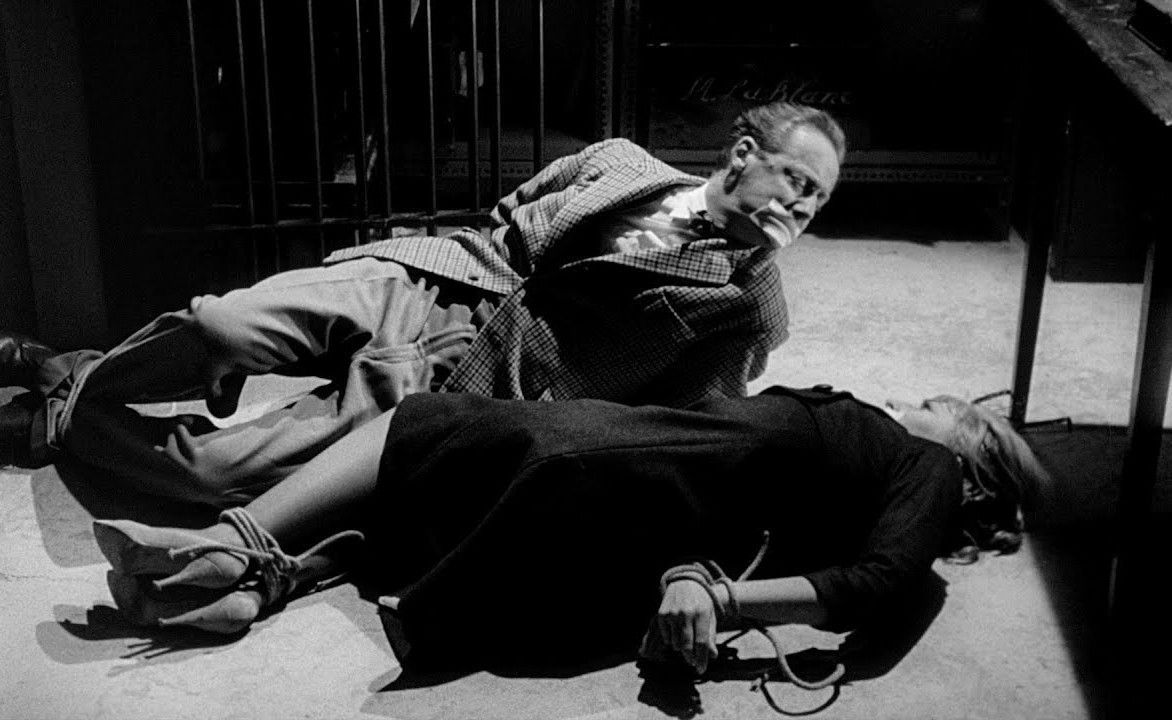Why Demolition Man is the most accurate version of the future
midlandsmovies • May 29, 2020

Why Demolition Man is the most accurate version of the future in movies
Let’s get this out the way... I love Demolition Man. Although as a 13 –year old I appreciated the action and silly back and forth between hero John Spartan (Sylvester Stallone) and psychotic criminal Simon Phoenix (a never better Wesley Snipes), the film’s themes and mix of comedy and action has got better and better over the years.
For me, the parody and satire on the dystopian and oppressive future makes the film an underrated classic which has gained a better reputation given its history. As time has passed, the presentation of the future has seemed more and more prescient as many once-frivolous and throwaway comments have actually turned out to be strangely correct predictions of the future. Released in 1993 and with a brief prologue in 1997 before setting the majority of the movie in 2032, this 22-year old movie (good lord!) also alludes to Huxley’s A Brave New World.
In addition, the film’s director is Marco Brambilla who is more famous as a Milan-born, New York City-based video collage and installation artist, known for his elaborate recontextualizations of popular and found imagery! No wonder there’s a bit more to this film than the superficial Stallone flicks that came before.
So, in research for this feature I have already seen a few other articles briefly listing the prophetic nature of the film, I hope to add to the many strange coincidences that appear in this seemingly innocuous 90s action shoot ‘em up.
So, be well folk and take a read of the following bizarre forecasts from the movie itself.
Self Drive Cars, voice activation and GPS
Once Stallone’s character John Spartan is thawed he is given a temporary police badge and tries to exert his machismo over Sandra Bullock’s Lenina Huxley by demanding to drive. However, after getting in the front seat he’s confronted by a myriad of buttons and technology that he has no idea how to use and sheepishly returns to the back seat of the cop car. It is here where we see the ability to put the car into “self-drive” mode which has seen recent gains in development from Google - http://www.google.com/selfdrivingcar In addition to this, the command is given by voice with the car “speaking” back to the driver to inform them of the result of their command much like Siri on an iPhone. Finally, the same voice informs the driver where they are in San Angeles predicting both Google Maps and GPS in general.
Smoking, junk food and swearing bans
Almost immediately after waking from cryo-prison, Stallone requests a cigarette from the cops only to be told they are now banned completely. In the UK, smoking was banned from enclosed workspaces (even public accessible ones) in 2007, the age to buy them raised to 18, before a subsequent ban on displaying tobacco packets AND finally a bill demanding plain packaging due to come into force in 2017! The rise of e-cigarettes too has seen this once accepted pastime confined to the history books. The banning of food bad for you is also now being seen in the UK as popular supermarkets have since outlawed sweets and junk food from checkouts and whilst sugary drinks have also recently been cracked down on as this link shows - http://www.thedrum.com/news/2015/07/24/sugar-debate-rages-tesco-pulls-ribena-and-capri-sun-aisles
Although swearing has continued to be allowed, the punishments for bad language in professional sports have increased whilst some comedians like Frankie Boyle have been censored from TV owing to their colourful language and controversial style.
Schwarzenegger Politics
A brief reference in the film alludes to Arnold Schwarzenegger’s Presidential Library – which was no doubt added as a less-than-subtle in-joke by his fellow Planet Hollywood partner as Stallone was also briefly featured in a poster for The Terminator in the alternative reality of Last Action Hero. Again though, this off-the-cuff remark played out many years later as Arnie ditched his film roles and embarked on a successful political campaign with him ending up as Governor of California. Who would have thought it?
A love of nostalgia
One thing consistent with the future as we’re experiencing right now is a huge love of nostalgia. Just this year we have seen remakes/reboots of Terminator, Jurassic World, Point Break, Mad Max, Poltergeist and Fantastic Four. In the film, a running joke sees Bullock referencing films and language of the past only to get them slightly wrong resulting in innuendos and misunderstandings. Both her office and apartment are filled with a strange mix of eclectic antiques and trinkets from the 90s (including a Lethal Weapon poster) and with films like Pixels referencing 80s video games and Stallone’s own Expendables franchise reviving 90s action stars, a love of nostalgia is as strong now as it’s ever been.
Virtual Sex
At one point, Bullock and Stallone’s relationship develops and begins to get intimate and as they “agree” to have sex, Stallone prepares himself for a night of hot passion with the attractive Bullock. Little readies him for the “sex-helmet” liaison he has though which uses a Wi-Fi-style connection between himself and Huxley to get themselves off. Not much to add here other than the rise of sexting, mechanical sexual toys and I’m not sure if you’ve heard, but there’s some sexual material on the internet. Apparently.
Video calls
After the above sexual encounter goes awry, Stallone sits down to knit (part of his rehab process) and is soon interrupted by a wrong number coming from a video phone call. Although an obvious attempt to include some naked boobs (I’m not complaining), the film again shows how something they’ve invented for the script is now a regular technology used by people via Skype and Face-time to connect folk from all over the world.
Wesley Snipes jail time.
Wesley Snipes spent three years in prison for a crime. Self explanatory.
Criminal tagging
“What do you think you're scratching, caveman? You really surmise we'd let you out without control? Your code was implanted the second you thawed”.
In Demolition Man’s vision of the future, everyone is tagged to give the authorities a thorough knowledge of the people in the society they monitor. However, nowadays law enforcement agencies have since taken up this technology to monitor and track criminals using GPS. Now a routine part of the criminal justice system, its use has been regulated (and abused) by Dr. Raymond Cocteau – played creepily by Nigel Hawthorne.
On the spot fines
The most obvious use of this in the film is Spartan’s profanity that is constantly causing the automated surveillance technology around him to issue him paper fines for swearing. In the 90s and 00s in the UK, a huge increase in the amount of crimes covered by fixed penalty laws meant people could be issued a notice on the spot without further process for infringements of mainly anti-social behaviour. Although I can’t imagine Spartan being held to account for his many violations, he does utter a tirade of abuse at one point to get issued enough “toilet paper” for his bathroom visit as he does not know how to use the “three seashells”.
Franchise wars
Huxley mentions that Taco Bell was the winner of the franchise wars (sounding not so dissimilar to the Clone Wars, ha ha) resulting in all restaurants being Taco Bells. Not so far from this is the modern phenomenon of a Starbucks on every corner and where would we be without the one-franchise-to-rule-them-all that is Apple Corp? Probably better off. (Says I, the Android user).
Tablets, webinars and streaming video
At one point, it is very clear that the police chief is chatting to Huxley on a mobile device the size of a table mat. In other words, a tablet or iPad. These devices are expanded on when Dr. Cocteau holds a virtual “webinar” with a group of his advisors who are screened on various chairs in a meeting room. In addition, when the police attempt to apprehend Simon Phoenix after his spree of “Murder Death Kills” (MDKs) the primary officer follows a video lesson on a handheld device he’s carrying somewhat comparable to a host of instructional videos over at YouTube.
Wealth gap
The society Spartan enters seems idyllic at first glance with diseases eradicated, bad things outlawed and crime at a low but the film soon deconstructs these impressions by highlighting how these “advances” have curbed freedom of choice so much that an underclass has developed. Housed beneath the city in sewer systems, the film turns a satirical eye towards the differences in wealth (both financial and moral) between those in power and those in lower classes. From their rat-burgers to Oldsmobile cars, Spartan finds a connection with the group known as “Scraps” and its problems with the lack of choice is echoed in a speech from their leader Edgar Friendly – played by loudmouth political comedian Denis Leary.
As well as the specifics above there are a whole host of general areas as well that the film taps into. Other points include the increase of advertising (that become so prevalent the characters in the future now consider them legitimate songs) as well as a gun museum which the NRA seem to have stolen for their Washington museum built in 1998. Also, non-violent weapons (modern tazers), cryo freezing (just embryos right now rather than people) and eye-recognition security also make an appearance.
Some things that are no longer relevant and they didn’t get right? Well, Japanese fashion still looks a bit strange as well as the shots of mini laser discs which are now as obsolete as Benjamin Bratt’s career. However, that particular actor did rejoin Bullock in Miss Congeniality as well as Snipes reteaming with a beret-clad Stallone in The Expendables 3.
In conclusion, my love for this film hasn’t diminished one bit and the strange coincidences from the film’s vision of the future seem more relevant than ever. A staple of my growing up, Demolition Man continues to be both futuristic and fun and even allows me to wallow in my own favourite quotes (“hire a maniac to catch a maniac”) and appetite for a nostalgic action classic.
Michael Sales





